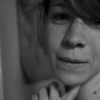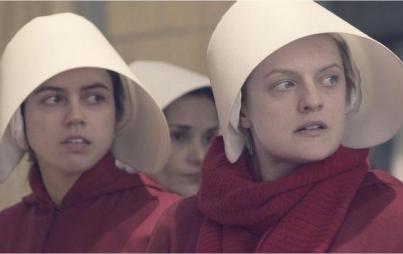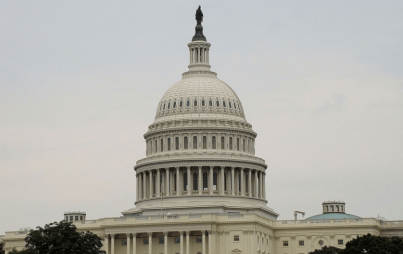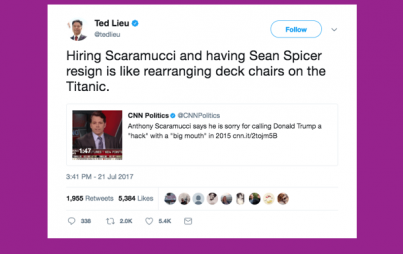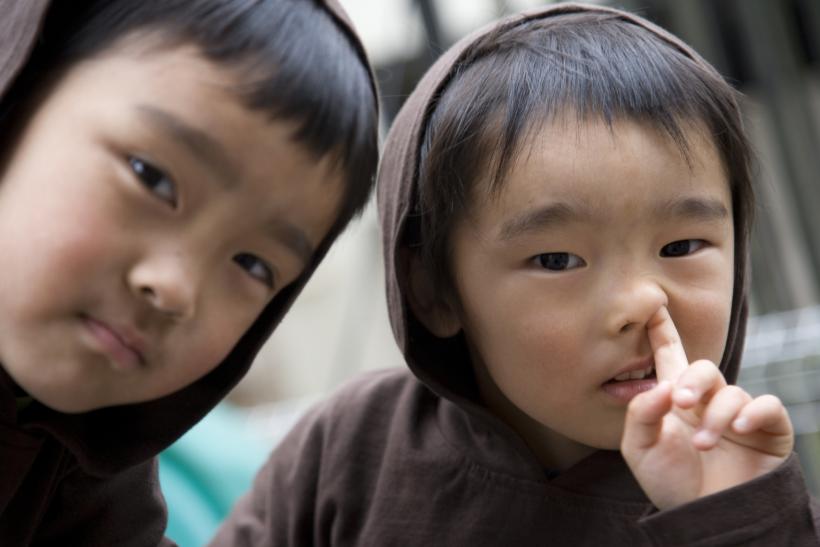
In lieu of the recent election, which is likely to invoke many a dinner table fights that will continue through Thanksgiving, we are left wondering: Why is partisan compromise so difficult, if not outright impossible? Why is it just sparring sides with no actual progress?
Well, not to make excuses, but biological differences may be at play.
In a Current Biology study released Friday, neuroscientists found that brain imaging can predict political affiliation—as linguists and psychologists have hypothesized for some time. The correlation? Conservatives tend to experience more "disgust" at inherently gross images (e.g. a mutilated animal) than liberals.
The research, led by Virginia Tech neuroscientists, had 83 participants undergo an fMRI scan while viewing images (neutral, pleasant, disgusting, etc.) Although participants tended to respond similarly to pleasant images, conservatives showed higher brain activity in regions that suggest an emotional response when viewing "animal-reminder disgust" pictures. Interestingly, after the scan, when they were asked to self-report thoughts, participants failed to make the same association, implying diverging neural reactions are solely implicit and unconscious.
"We proposed that conservatives, compared to liberals, have greater negativity bias, which includes both disgusting and threatening conditions in our study," The authors of the study wrote.
"Negativity bias" has been long discussed as a true, and powerful, phenomenon. In 2008 and 2012 studies, respectively, the University of Nebraska's "Political Affiliation Laboratory" found evidence that sensory reactions vary with political opinion. For example, the more conservative participants were more likely to jump at loud stimuli and sweat at the sight of maggots and the like; they also focused their gaze on threatening images for longer periods. Mother Jones has a nice summary of this research, but the takeaway is that these studies are reflective of bigger differences in how individuals participate in and think about life.
To put it simply, conservatives are more sensitive to the grotesque than their liberal counterparts. To those tending toward conservative orientation, naturally, the world is dirty, dangerous and the "good" people—people like themselves—should be fearful; liberals often tend to believe that everyone has good intentions (clearly neither side is always right).
The whole story, however, might be a bit more complex.
The Role Of Linguistics
George Lakoff, a cognitive linguistic at UC Berkeley, has been theorizing about how this works, making connections that aren't quite supported by brain waves . . . yet.
Lakoff summarized to the Berkeley News Center that conservatives ascribe to a "strict father" worldview. Discipline in children is key—those who lack discipline will fail where those who are self-reliant will strive. Lakoff surmises that this underlying belief is at the core of why they tend to vote against social programs. Liberals, on the other hand, believe that children are born "good" and even apparent scapegoats could be well-intentioned and affected by circumstance. For liberals, the world is a "gray" place, whereas for their opposites, such a presumption is an uncomfortable premise.
Going back to the original study by Ahn and the other researchers, the experience of disgust, which may go along with fear of "the other," could just a more prominent experience for conservatives throughout their lives, where liberals can more easily shake it off.
It's also important to acknowledge that roles of the congenital brain and experiential changes in chemistry have not yet been differentiated in research—moreover, the study's authors suggest that life experience can alter someone's political beliefs—and their brain fMRIs will concur. The authors speculated (in typically dense language) that "cumulating evidence suggests that cognition and emotion are deeply intertwined and a view of segregating cognition and emotion is becoming obsolete."
It makes one wonder: How could such research alter our future? What if brain scans were a precursor to jury selection or other parts of life where bias is bad? Like much in science, it's kind of creepy, when you really think about it.

